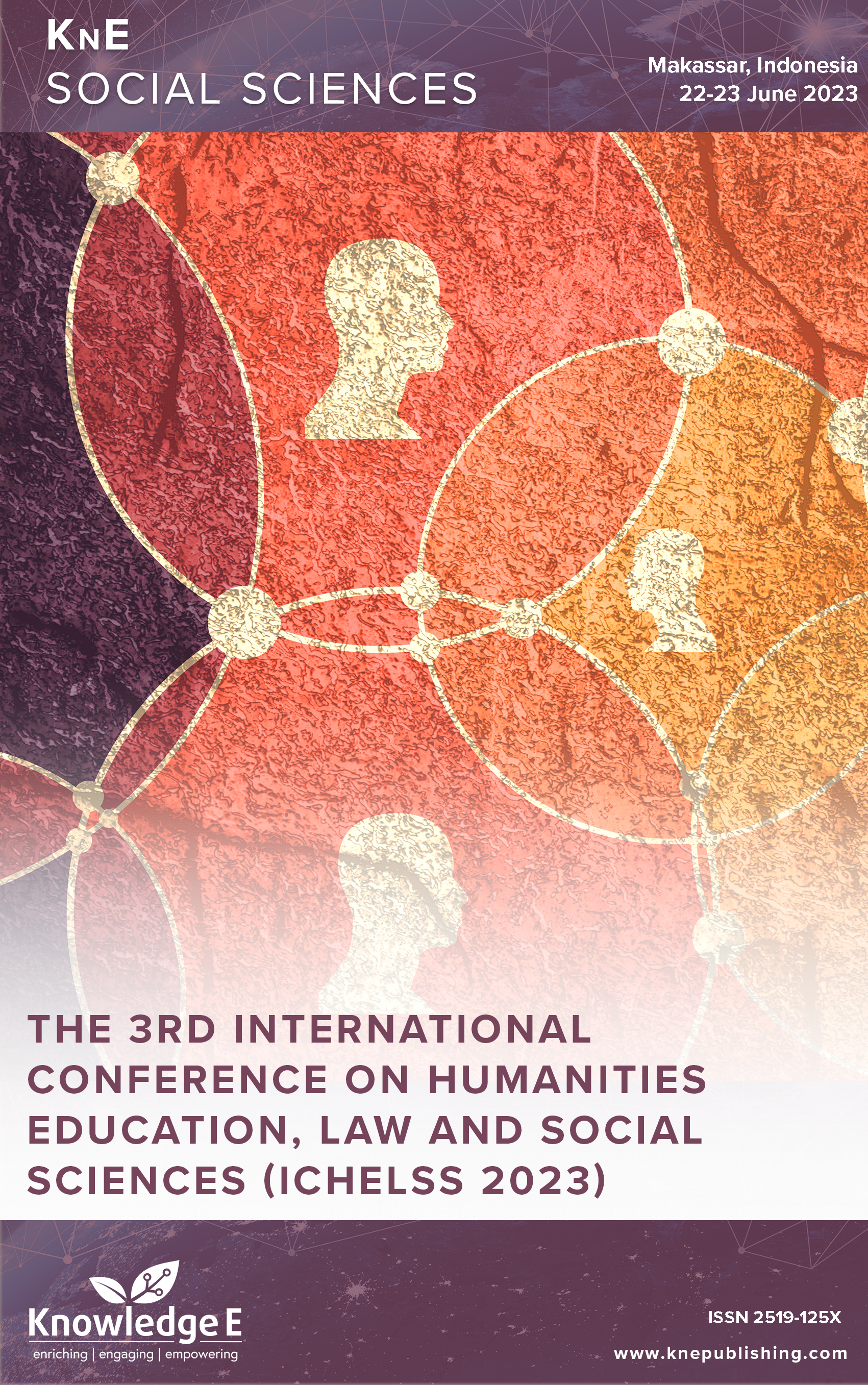The Role of Stakeholders in the Co-Creation Process in Tourism Village
DOI:
https://doi.org/10.18502/kss.v9i2.14881Abstract
The potential of the tourist village destinations is immense, and it is the responsibility of all stakeholders to ensure that more attention is paid to them. This is especially the case for the Cisaat tourist village, which has a great deal of potential, and the agricultural villages which are the main tourist attractions. As a result, the Co-creation Strategy has become an essential bridge for the management and development of the tourism village in Cisaat. This study seeks to investigate the role of facilitators in the development of tourist villages through a qualitative methodology. Through interviews with representative stakeholders, data was collected. The results of the study reveal that the primary stakeholders in the development of tourism villages are local organizations, communities, industries, universities, and local governments. The outcome of the study is a strategy for the development of tourism products, access to destinations, and the improvement of services for tourists.
Keywords: co-creation, stakeholder, tourism village
References
Padabain FA, Nugroho S. Implementasi Program Desa Wisata Dalam Rangka Pemberdayaan Masyarakat di Desa Mas, Kecamatan Ubud Kabupaten Gianyar, Provinsi Bali. J Destin Pariwisata. 2018;5(2):327. DOI: https://doi.org/10.24843/JDEPAR.2017.v05.i02.p23
Administrator. Ekonomi, Desa Wisata Jadi Pengungkit Ekonomi. 2021 [Internet]. Available from: https://indonesia.go.id/kategori/editorial/2655/desa-wisata-jadipengungkit- ekonomi
Admin. Hebat, Prodi Perjalanan Wisata UNJ Raih Juara 3 Pendampingan Desa Wisata dari Kemenparekraf RI. timesindonesia.co.id [Internet]. 2020; Available from: https://timesindonesia.co.id/indonesia-positif/313811/hebat-prodi-perjalanan-wisataunj- raih-juara-3-pendampingan-desa-wisata-dari-kemenparekraf-ri
Safitri I, Ramdan AM, Sunarya E. Peran Produk Wisata dan Citra Destinasi terhadap Keputusan Berkunjung Wisatawan. J Ilmu Manaj. 2020;8(3):734. DOI: https://doi.org/10.26740/jim.v8n3.p734-741
Kurniawan C, Kusumawati A, Iqbal M. Conceptual paper analisis co-creation experience serta dampaknya. J Adm Bisnis. 2020;(pecial Issue (Ekosistem Start Up) 2020):24–38.
Eddyono F. Pengelolaan Destinasi Pariwisata [Internet]. Uwais Inspirasi Indonesia; 2021. Availablefrom: https://books.google.co.id/books?hl=en&lr=&id=OTQhEAAAQBAJ&oi=fnd&pg=PA37&dq=info:aQjgkJT4mJ0J:scholar.google.com&ots=6awZLIieL0&sig=8ObS12-TurDRDEw_9Vx51w7sH0U&redir_esc=y#v=onepage&q&f=false
Wiguna IA, Mahyuni LP, Sutrisni KE, Yulianti NM. Membedah strategi co-creation marketing usaha milenial. Inovasi. 2021;17(4):636–44. DOI: https://doi.org/10.30872/jinv.v17i4.10033
Bourne L, Walker DH. Visualising and mapping stakeholder influence. Manage Decis. 2005;43(5):649–60. DOI: https://doi.org/10.1108/00251740510597680
Arismayanti NK, Sendra IM, Suwena IK, Budiarsa M, Bakta IM, Pitana IG. Tourism Villages’ Development in Bali, Mass or Alternative Tourism? J Tour Hosp Manag. 2019;7(2):117–39. DOI: https://doi.org/10.15640/jthm.v7n2a11
Karawang DI. Jurnal Ilmiah Pariwisata, Volume 22 No. 3 November 2017. 2017;22(3):122–31.Availablefrom: http://jurnalpariwisata.stptrisakti.ac.id/index.php/ JIP/article/view/1163/74 DOI: https://doi.org/10.30647/jip.v22i3.1163
Frow P, Nenonen S, Payne A, Storbacka K. Managing Co-creation Design: A Strategic Approach to Innovation. Br J Manage. 2015;26(3):463–83. DOI: https://doi.org/10.1111/1467-8551.12087
Garcia-Rosell JC, Makinen J. An integrative framework for sustainability evaluation in tourism: applying the framework to tourism product development in Finnish Lapland. J Sustain Tour. 2013;21(3):396–416. DOI: https://doi.org/10.1080/09669582.2012.708038
Moro S, Rita P, Olga Oyner AK. Worldwide Hospitality and Tourism Themes Forecasting tomorrow’s tourists. Worldw Hosp Tour Themes. 2016;8(6):643–53. DOI: https://doi.org/10.1108/WHATT-09-2016-0046

